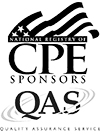Fraud in Local Government

Overview
Online
Description
Government agencies are major targets for internal and external fraud schemes. Some of the most significant government frauds involve small, local government entities which often have limited oversight and scarce resources. In this course, you will learn about some of the most common types of schemes that occur at the local level and the measures that can be taken to prevent them.
Key Takeaways:
- Real-world examples of fraud schemes committed against local governments
- Reasons why government entities are prime targets for fraud
- Motivations for why government employees might commit fraud
- The most common frauds at the local level, including occupational fraud, public corruption, procurement fraud and grant fraud
- Cost-effective strategies for preventing and detecting fraud in local governments
Prerequisites
None
You Will Learn How To:
Identify the characteristics that make local governments attractive targets for fraudsters
Determine which internal control weaknesses can make local governments more susceptible to fraud
Recognize how government employees might collude with outside parties to carry out schemes
Identify measures that can be taken to protect local government departments from fraud
Recall the various fraud schemes that can affect local government entities
Table of Contents
| Lesson 1 | Introduction |
|---|---|
| Lesson 2 | Local Government as a Target for Fraud |
| Lesson 3 | Types of Government Employees |
| Lesson 4 | Asset Misappropriation |
| Lesson 5 | Cooking the Books and Municipal Bond Fraud |
| Lesson 6 | Bribery, Illegal Gratuities, and Extortion |
| Lesson 7 | Conflicts of Interest |
| Lesson 8 | Making and Concealing Corrupt Payments |
| Lesson 9 | The Procurement Process |
| Lesson 10 | Collusion Among Contractors |
| Lesson 11 | Collusion Between Government Employees and Contractors |
| Lesson 12 | Performance Schemes |
| Lesson 13 | The Grant Process |
| Lesson 14 | Grant Schemes |
| Lesson 15 | Anti-Fraud Education |
| Lesson 16 | Developing and Maintaining an Ethical Climate |
| Lesson 17 | Other Fraud Prevention and Detection Measures |
CPE Information
| CPE Credit: | 4 |
|---|---|
| NASBA Information: | Auditing (Governmental) |
| Advance Preparation: | None |
| Last Updated: | January 2024 |
| Delivery Method: | QAS Self-Study |
Policies
CPE Credit
Please note: To be eligible for CPE credit, you must complete the final exam within one year of purchase date. You may only claim CPE credit for a course once.
ACFE Online Self-Study Courses
Features:
- 24/7 access to courses through your Internet browser
- Save time and quickly earn CPE credits with instant access, grading and printable certificate
- The flexibility to start or stop a course and pick-up right where you left off
- No additional shipping fees
Learn More about accessing your online self-study course
Learn More about online self-study courses and their features
System Requirements:
- Internet access: High-speed connection recommended
- Speakers required for video sound
 The Association of Certified Fraud Examiners, Inc. is registered with the National Association of State Boards of Accountancy (NASBA) as a sponsor of continuing professional education on the National Registry of CPE Sponsors. State boards of accountancy have final authority on the acceptance of individual courses for CPE credit. Complaints regarding registered sponsors may be submitted to the National Registry of CPE Sponsors through its website: www.nasbaregistry.org/.
The Association of Certified Fraud Examiners, Inc. is registered with the National Association of State Boards of Accountancy (NASBA) as a sponsor of continuing professional education on the National Registry of CPE Sponsors. State boards of accountancy have final authority on the acceptance of individual courses for CPE credit. Complaints regarding registered sponsors may be submitted to the National Registry of CPE Sponsors through its website: www.nasbaregistry.org/.
Ordering and Returns
Satisfaction Guarantee
If you are not 100% satisfied with any ACFE product, you may return it to us, provided it is in excellent condition, for a full refund of the item minus the cost of shipping. Toolkits and bundles may only be returned as a complete set.
Ordering & Returns Policy

